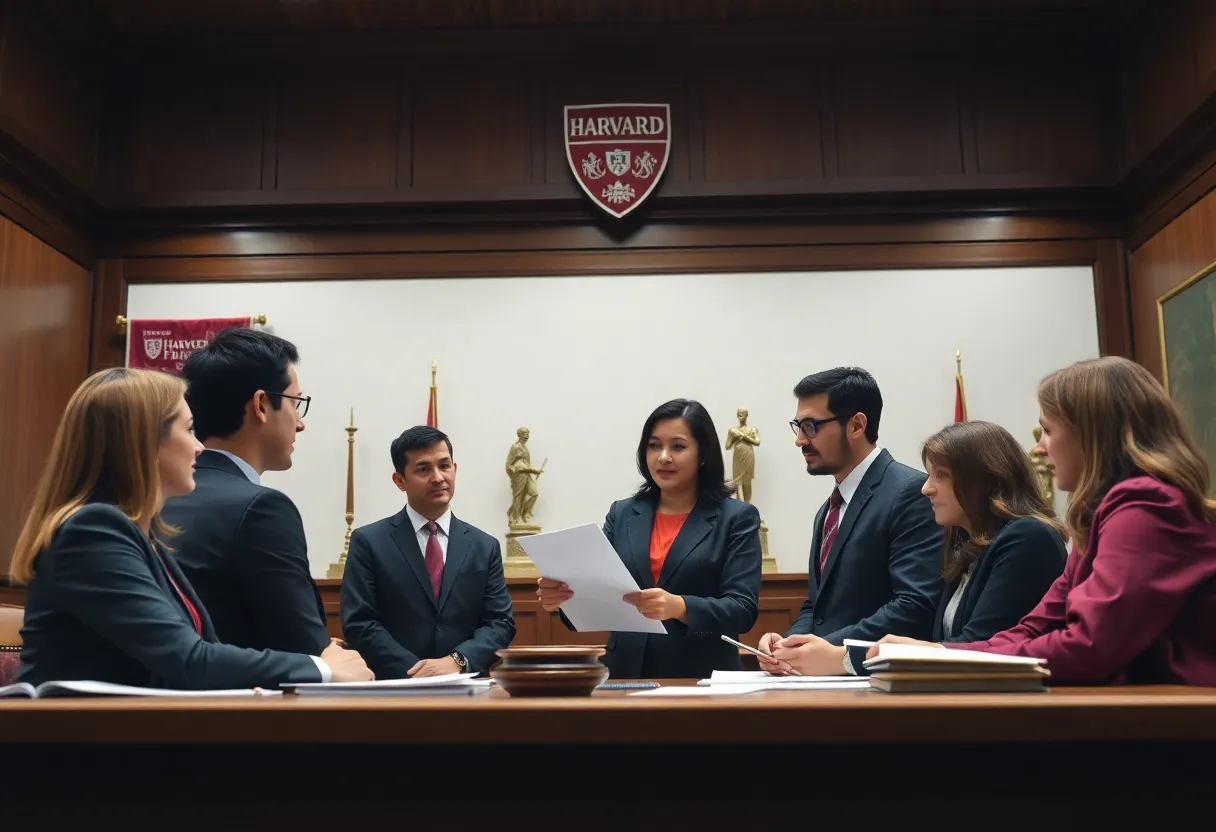

Harvard professors take legal action against the Trump administration over federal funding review.
Harvard University professors have filed a lawsuit against the Trump administration in response to a review of nearly $9 billion in federal contracts and grants. They argue that this scrutiny poses a threat to academic freedom and free speech, alleging a chilling effect on vital research. The professors are seeking a temporary restraining order to prevent potential funding cuts, which could significantly impact scientific research and innovation at the university. This controversy reflects broader tensions around federal funding and its implications for academia.
In a dramatic move, two groups representing professors at Harvard University have decided to take a stand against the Trump administration. They filed a lawsuit in Boston federal court that aims to block the administration’s review of nearly $9 billion in federal contracts and grants awarded to the university. The professors, part of the Harvard faculty chapter of the American Association of University Professors, have characterized the administration’s behavior as a serious threat to academic freedom and free speech.
At the crux of this legal conflict is the administration’s ongoing scrutiny, which the professors argue is a direct result of perceived antisemitism on college campuses. In their lawsuit, they describe the administration’s tactics as an existential “gun to the head” for Harvard, raising serious concerns about the chilling effect this could have on the academic environment at one of the country’s most prestigious institutions.
Specifically, the professors are unhappy with what they describe as an arbitrary and capricious review of their funding. They contend that the Trump administration has failed to provide a reliable explanation for the potential withdrawal of funds, which includes both contracts and multiyear grants amounting to $8.7 billion.
The lawsuit was filed in conjunction with a motion for a temporary restraining order, which aims to halt any cuts to federal funding while the legal proceedings unfold. The professors fear that if the funding is cut, it could halt vital research, potentially impacting life-saving innovations. Harvard’s President has echoed these concerns, stating that funding revocation would significantly hinder scientific research and innovation.
Adding to the complexity, the Trump administration has indicated that it is considering funding cuts as a response to pro-Palestinian campus protests. They’ve also raised issues surrounding the university’s diversity, equity, and inclusion programs. As part of the conditions for keeping their federal funding, schools are facing demands such as banning mask usage during protests and cooperating closely with law enforcement.
The Department of Education, along with other agencies like the Department of Health and Human Services, are currently reviewing about $255.6 million in contracts linked to Harvard. The professors claim that the administration’s application of Title VI of the 1964 Civil Rights Act to justify this review is a gross misinterpretation of the law. They argue that the administration is misusing these regulations to bully universities into quelling free speech that doesn’t align with governmental policy.
Recent protests at Harvard, which saw hundreds of students and faculty participating, reflect the broader tensions surrounding these funding threats. The professors emphasize that the First Amendment protects both students and faculty in their rights to free speech, a cornerstone of what makes academia thrive.
Interestingly, Harvard is not alone in facing potential funding cuts. Other prestigious universities, such as Columbia, have already experienced similar actions from the Trump administration, suggesting a wider strategy aimed at elite institutions. This broader trend indicates a significant shift in how federal funding may be leveraged to influence academic discourse across the country.
As this legal battle unfolds, the fate of federal funding for Harvard remains uncertain, but one thing is clear: the outcome could have serious ramifications for academic freedom and the overall climate of debate and inquiry on campuses nationwide. The professors’ fight against what they see as overreach could set important precedents for the future of higher education.
News Summary Nadine Menendez has been convicted on 15 charges, including bribery and conspiracy, following…
News Summary In a recent meeting in New Delhi, U.S. Vice President JD Vance and…
News Summary Kristi Noem experienced a shocking incident during her Easter dinner in Washington D.C.…
News Summary Harvard University has launched a federal lawsuit against the Trump administration in response…
News Summary On April 15, Jerry Bowman Jr. was officially sworn in as the new…
News Summary On April 18, 2025, the Captain Shreve softball team dazzled fans with a…